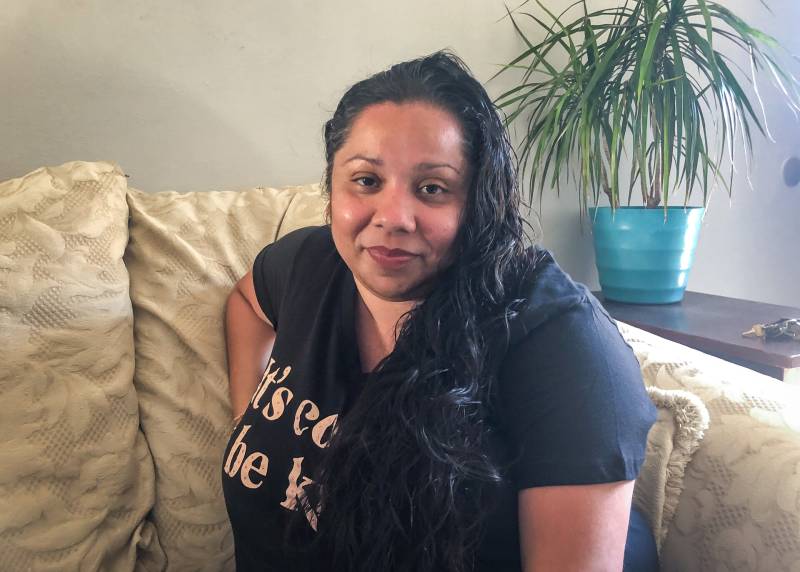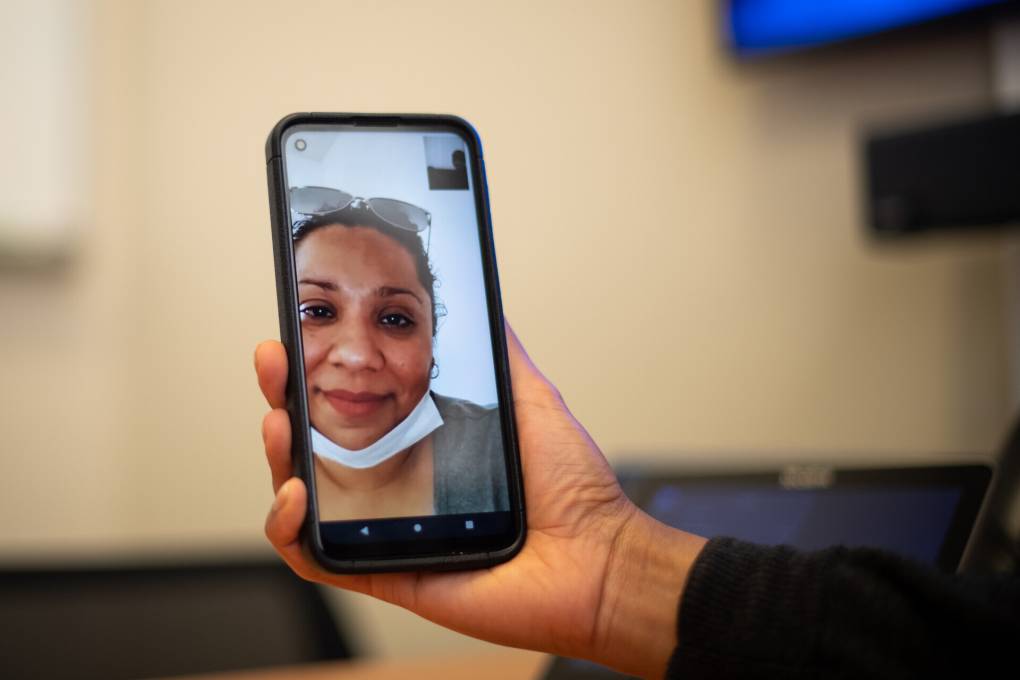A bill that would restrict California prisons from handing certain people over to immigration authorities upon their release gets its first hearing in the state Assembly this morning.
The bill, known as the HOME Act, takes a more targeted approach than its predecessor, the VISION Act, which narrowly failed in the state Legislature last August.
Rather than block all transfers from prison to U.S. Immigration and Customs Enforcement (ICE), the HOME Act would protect noncitizens from being turned over to federal authorities if the governor has granted them clemency, or they’ve been released from prison due to any of several criminal justice reform laws recently enacted in California.
The bill’s author, Assemblymember Wendy Carrillo (D-Echo Park), says that when the Legislature passed those reforms — aimed at reducing over-incarceration and racial disparities in the criminal justice system, and offering second chances — she doesn’t believe lawmakers meant to exclude immigrants.

“Yet the state of California has created a dual system of justice, which treats immigrants differently after they have paid their debt to society and have been paroled. They are not given the opportunity to restart their lives and go home,” she said. “It is a complete injustice in our judicial system.”
Under federal immigration law, even legal permanent residents with green cards can lose their status and be deported if they have committed certain crimes. Undocumented immigrants who lack legal status are also deportable, though in recent years, California has enacted a range of policies to support all immigrants, including those who are unauthorized.
Legal tug-of-war
One person who could have benefited from the HOME Act is Sandra Castañeda, a Los Angeles woman who was released from prison in 2021, after 19 years behind bars.
Castañeda had been convicted of second-degree murder in 2002 after a teenager was killed when a man fired from the window of Castañeda’s van as she drove acquaintances to Taco Bell. The shooter was never arrested, and, though she had no criminal record, Castañeda was sent away for 40 years-to-life for the shooting.

But in 2018 the state Legislature narrowed the “felony murder” law, which allowed for murder charges for people like Castañeda, who were present at a murder but did not themselves kill anyone. And a state judge vacated her conviction and ordered her freed.
Yet rather than let Castañeda go home to her family, prison officials arranged for ICE to take her into custody on the day of her release. She spent another year incarcerated at an ICE detention center in rural Georgia, fighting deportation.
Though Castañeda has been a legal U.S. resident since age 9, she had never become a citizen, and ICE officials argued that her conviction — even though it had been overturned — was grounds to remove her from the country. An immigration judge has since ruled she’s not deportable because she now has only a misdemeanor on her record, but ICE is appealing.
Mending the heartbreak
Castañeda, now 41, will testify at this morning’s state Assembly hearing, calling on lawmakers to pass the HOME Act and to allow people like herself, who’ve earned their release, to be able to return to their loved ones. (She not only had her conviction overturned, based on the change in the felony murder law, but also had her sentence commuted by Gov. Gavin Newsom and won early parole based on her rehabilitation.)
“I want them to see what they do to our families and to ourselves,” she said. “I want them to see the heartbreak.”

Castañeda recalled her own sense of fear and powerlessness when, after a years-long effort to be released and the uncertainty over how to build a new life as a free woman, she learned that she faced an immigration hold.
“You’re already dealing with the roller coaster emotions of coming home. And then they tell you, ‘Oh, never mind, you’re going to go to ICE.’ So now I’ve got to go sit at this place wondering if I’m going to get deported,” she recalled. “That really puts more stress on people. And being in the detention center, you hear about these people committing suicide because they don’t want to go back to their country. It’s a scary situation.”
The HOME Act, AB 1306, would bar prisons from handing over to ICE those noncitizens who are being released as a result of several recent criminal justice reform laws passed by the Legislature and signed by Newsom or his predecessor, Jerry Brown. They include:
- People eligible for compassionate release or parole because they are older or suffering severe medical conditions.
- People eligible for early parole after serving a set amount of time because their crimes were committed in their youth.
- People whose crimes were a direct result of having been victims of sexual assault or domestic violence.
- People eligible for release because they demonstrate that racial bias affected their case.
- People, like Castañeda, eligible for resentencing because they were originally convicted under the felony murder rule but did not kill anyone.
The bill would also protect people whose sentences were commuted by the governor. And, where the unsuccessful VISION Act also would have banned transfers from local jails to ICE, the HOME Act only focuses on restricting transfers by the California Department of Corrections and Rehabilitation, or CDCR.


